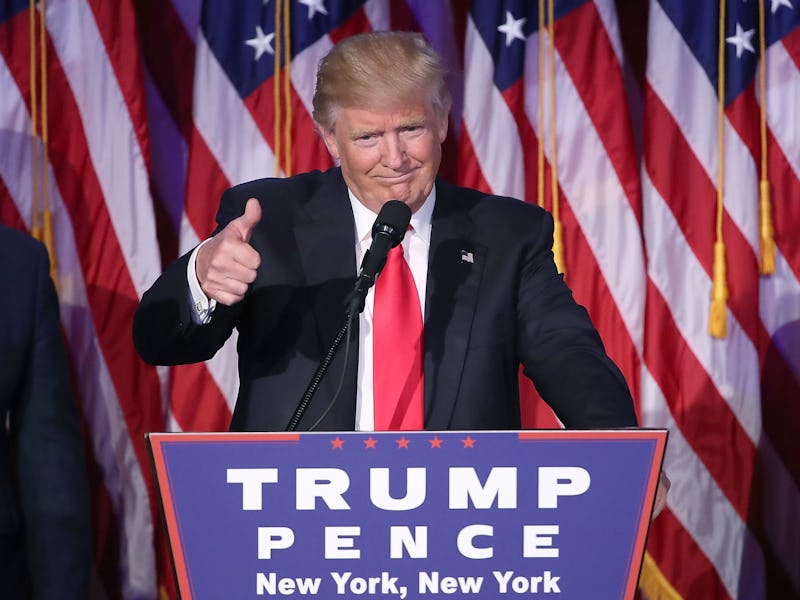Democrats Are 3 Times More Likely to Unfriend People Online Post-Election
Liberals prove less willing to put up with political differences online.

In a study published this week by the Public Religion Research Institute, three times more Democrats than Republicans reported blocking, unfriending, or unfollowing people with whom they disagree politically online. While only 13 percent of all respondents across the political spectrum said they actually engaged in this removal of friends, 24 percent of the Democrats surveyed said they did it. Republicans, on the other hand, were less likely to unfriend people over politics, with only 9 percent of those surveyed reporting that they did it.
That’s a major skew in the direction of Democrats. Even absent specific party identifications, the trend held — the margins actually got wider. “Political liberals are also far more likely than conservatives to say they removed someone from their social media circle due to what they shared online (28 percent vs. 8 percent, respectively),” says PRRI. And, in case you were wondering whether these numbers translate into tangible, real-world relationships, the answer is yes. PRRI also found that during this holiday season, Democrats are “five times more likely than Republicans to say they are trying to avoid certain family members due to their political views (10 percent vs. 2 percent, respectively).”
When considering these findings, it must be remembered that it was Donald Trump and the Republicans who came out on top during the election. The results may have left liberals feeling particularly bitter and disenchanted, with Republicans feeling rather magnanimous toward their defeated counterparts.
The fact remains, however, that these findings are consistent with earlier reports in which Trump supporters had been complaining, in the days immediately following the election, that their friends were removing them on social media. They also fall in line with a similar study conducted two years ago by the Pew Research Center that examined the same types of behavior.
More broadly, the PRRI study provides further evidence of what some have identified to be an emerging trend among today’s liberals, particularly young people. Liberals, some say, have become host to what can be called an “intolerance for intolerance” in pursuit of eliminating racism, sexism, and other discriminatory attitudes.
Laudable as that goal is, one has to question whether heightening Americans’ current ideological isolation by unfriending people is really the most effective method of combating these social forces. Systems like racism are bred in isolation and ignorance, and now more than ever, it may become important for liberals to engage with those views, rather than tune them out.
For some, though, unfriending may be born out of more than a simple disinclination to engage with conservative perspectives. The PRRI study found, additionally, that there is a significant gap between genders in this area. “Women are twice as likely as men to report removing people from their online social circle because of the political views they expressed online (18 percent vs. 9 percent, respectively). Three in ten (30 percent) Democratic women say they removed an individual from their online social network,” compared to only 14 percent of Democratic men. For women, many of whom have been made to feel unsafe or uncomfortable because of Trump’s misogynistic rhetoric, there may be something more at stake than intellectual pride.